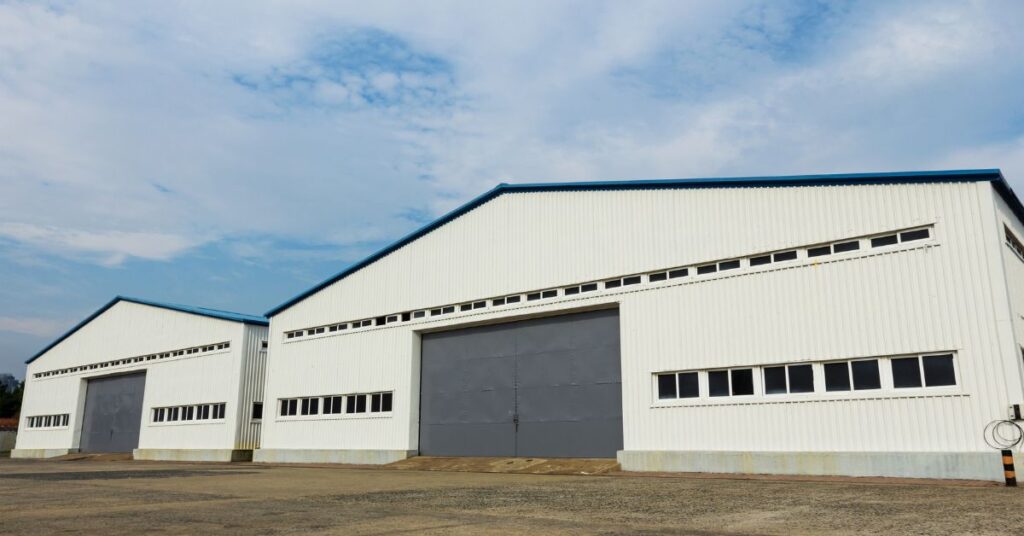Introduction to Warehouse Storage
Warehouse storage is an integral component of the supply chain for many businesses in Johannesburg, providing a secure and efficient way to manage inventory and operations. The strategic importance of warehouse storage is particularly pronounced in a bustling economic hub like Johannesburg, where timely and efficient access to goods can significantly impact business success. This guide explores the various aspects of warehouse storage, from choosing the right type to implementing security measures, all tailored to meet the needs of Johannesburg’s diverse business landscape.
Types of Warehouse Storage Facilities

In Johannesburg, businesses have access to several types of warehouse storage facilities, each catering to different logistical needs and security requirements. Public warehouses offer shared space and resources, making them a cost-effective option for small to medium-sized enterprises that do not require exclusive storage facilities. Private warehouses, on the other hand, are used exclusively by one business, offering greater control and security for large volumes of products or sensitive materials. Bonded warehouses provide additional benefits, such as deferred payments on duties for stored goods until they are ready to be shipped or sold. Understanding these options helps businesses optimise their logistics and security strategies according to their specific needs.
Features of Modern Warehouse Facilities
Modern warehouse facilities in Johannesburg are equipped with advanced features to enhance security and operational efficiency. State-of-the-art CCTV systems and monitored alarm systems are standard, providing 24/7 surveillance and security. Additionally, modern warehouses often incorporate automated inventory management systems that streamline operations and reduce the risk of errors. These systems also improve inventory tracking, making it easier to manage stock levels and fulfil orders promptly. The integration of such technologies not only secures the warehouse but also enhances its functionality, making it an indispensable part of modern business operations.
Choosing the Right Warehouse Location
The location of a warehouse can significantly impact the efficiency and cost-effectiveness of a business’s operations. In Johannesburg, factors such as proximity to transport links, market accessibility, and the security of the surrounding area are paramount. A well-located warehouse can reduce transportation costs and lead times, which is crucial for maintaining a competitive edge. Additionally, a location with good infrastructure and security reduces risks associated with theft and damage, ensuring smooth operations and business continuity.
Health and Safety Standards in Warehousing
Compliance with health and safety standards is critical in warehouse operations, particularly in a regulatory environment like South Africa. Warehouses must adhere to strict safety protocols to protect workers and goods. This includes maintaining clear emergency exits, proper handling and storage of hazardous materials, and regular safety training for staff. Adhering to these standards not only ensures compliance with local laws but also promotes a safe working environment, which is essential for operational efficiency and worker satisfaction.
Warehouse Storage Costs in Johannesburg
The cost of warehouse storage in Johannesburg can vary based on factors such as location, size, and the specific features and services provided. Businesses need to carefully consider these factors when budgeting for warehouse expenses. Cost-saving strategies might include negotiating long-term lease agreements or optimising warehouse layout to maximise space utilisation. Additionally, understanding the full spectrum of costs—from rental fees to operational expenses—can help businesses make informed decisions that align with their financial and logistical objectives.
Optimising Warehouse Storage Space
Efficient utilisation of warehouse space is vital for maximising storage capacity and reducing costs. Techniques such as high-density shelving and vertical stacking can significantly increase the amount of inventory that can be stored in a given footprint. Additionally, thoughtful layout planning that considers the frequency and accessibility of item retrieval can enhance operational efficiency. Such optimisation not only improves the functionality of the warehouse but also contributes to better inventory management and faster order processing.
Inventory Management Best Practices
Effective inventory management is crucial for maintaining the efficiency and profitability of warehouse operations. Best practices include regular stock audits, implementing just-in-time inventory systems, and using warehouse management software to track stock levels in real time. These practices help prevent overstocking and stockouts, ensuring that the right products are available when needed and reducing holding costs. By adopting these inventory management strategies, businesses can maintain high levels of operational efficiency and customer satisfaction.
Security Measures for Warehouse Storage
Security in warehouse storage is about more than just preventing theft; it’s about ensuring the integrity of the goods stored and the safety of the staff. Comprehensive security measures should include physical barriers, electronic surveillance, and strict access controls. Training staff in security protocols and regularly reviewing and updating security measures can further enhance the safety of the warehouse. These steps are essential for protecting assets and maintaining trust with clients and stakeholders.
Technological Integration in Warehouse Operations
The future of warehouse storage in Johannesburg is being shaped by technological integration. Innovations such as robotic automation, advanced RFID systems, and Internet of Things (IoT) connectivity are making warehouses smarter and more efficient. These technologies not only streamline operations but also improve accuracy in inventory management and reduce human error. As technology continues to advance, embracing these innovations will be key for Johannesburg businesses looking to improve their warehouse operations and stay competitive in a global market.
Conclusion
Warehouse storage is a critical aspect of business operations in Johannesburg, affecting everything from logistics and inventory management to overall business profitability. By understanding the types of warehouses available, implementing advanced security and technology, and adhering to health and safety standards, businesses can optimise their warehouse operations to meet their specific needs. As technology continues to evolve, staying informed and adaptable will be crucial for leveraging warehouse storage effectively to drive business success.

